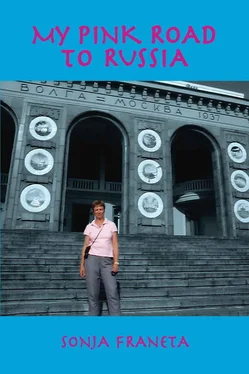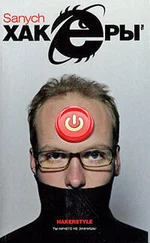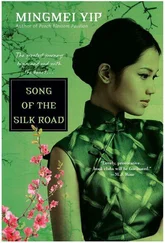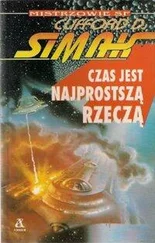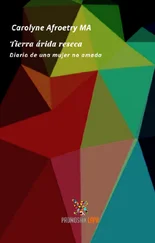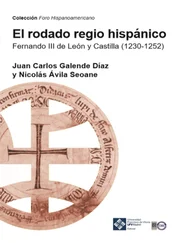After that, it was evident that war implies hatred directed against every difference, against Moslems in Belgrade, then against Roma, Albanians, lesbians—once upon a time in other places Others were Jews and communists. It opened in my mind so clearly that opposing war means coming out with the logic of supporting all social differences at once. One of the aims of war and pro-fascist ideology is not only separation of people of different nationalities, but the separation of people’s own identities as well.
These are wise words from a sister and activist, educated through struggle. Hers is the only answer—to unite and not allow ourselves to be divided by the forces that are driven to dominate, silence, or even annihilate us. Some may say, isn’t sex a private issue? When people lose their jobs or cannot get housing or cannot see loved ones, when they are dying, sexuality becomes a political and human rights issue. Being quiet and ashamed about one’s sexuality only leads to sickness and decay. Uniting with other oppressed sectors can mean hope, safety in numbers, and mutual support.
Bandied about in the 1990s was an absurd statement made by a famous Russian woman personality on a talk show, when the open discussion of homosexuality had just begun. “There is no sex in Russia,” she said in all seriousness. She was alluding to the idea that open sexual expression, including pornography, had been banned in the USSR and Russia, an idea similar to the denial of homosexual existence in some Arab countries where there is a long tradition of same-sex sexual activity in the bathhouses. Denial does not make homosexuality go away.
Throughout the world, queers have been told to hide their identities and not flaunt their sexuality, while heterosexuals have been given full permission to kiss in public and talk about their affairs, etc. Meanwhile queers must bury their identities, which promotes self-hatred and a neurotic fear of what others think about them, which in turn leads to health problems and sometimes violent homophobic reactions. Just as society is stuck on the two-gender model, never deviating from that possibility, so gays and lesbians are told not to exist and to subscribe to the heterosexual norm.
In our times, it is still acceptable to publicly subordinate women and queers through social rules, violence, and patriarchy. How is this private? In Russia and Uganda and other places today, being queer is deemed criminal. Worldwide, even women in the twenty-first century have still not overthrown the yoke of their oppression and that fact attests to the strong interest of the economic and social system in keeping traditions in place. Thus the argument that all struggles have to be fought simultaneously becomes more compelling.
Fixed ideas of gender and sexuality can be challenged by the understanding that all identity exists in relation to others. Scholar Kira Hall suggests that the kothi (feminine men who take a passive role in relationship with men) in India need a man to help define them as women. Kuzmich, the man I interviewed in Russia, when asked how he managed to survive in the camp, said he identified as active. He purposely posed as an active/masculine partner in prison to escape the brutality that the passive/feminine prisoners were subject to. This is not unlike the patriarchal setup in many societies—the male/active partner identifies as such so he can continue to be the man and have dominion over a family (his world), while the female/passive is ridiculed and marginalized for her gender.
Feminist and film theorist Teresa de Lauretis originally coined the term queer theory to show the radical, subversive, and changeable character of sexual identity, “queer unsettles and questions the genderedness of sexuality.” Queer theory as a term means looking at things from a untraditional, unusual point of view. In her book Queer Theory , Annamarie Jagose notes, “Teresa de Lauretis, the theorist often credited with inaugurating the phrase ‘queer theory’, abandoned it barely three years later, on the grounds that it had been taken over by those mainstream forces and institutions it was coined to resist.” Queer theory can still be useful in analyzing sexuality.
What does it mean to look at things through queer eyes? An acquaintance in St. Petersburg had just read Tsvetaeva’s novella, Story about Sonechka , about the gay theater world. When we discussed it, I asked, “Did you know that Tsvetaeva was bisexual or lesbian?” She paused, then said she had to read it again with that in mind. How different and enriched that reading could be! She could hypothesize queerly about Tsvetaeva’s interest in Sonya Golidey and the two gay actors who are featured so prominently.
Queer theory says that sexuality and gender are socially constructed and that this should be kept in mind in the reading of a text. It challenges strictly held identities and points to a fluidity in gender and identity. Arising from feminism and the exploration of women’s roles in society and of fixed identities, queer theory questions the idea that sexuality and even gender are part of the essential self. Queer theory is a reading that acknowledges complexity and experiences that cannot be labeled or permanently identified. Judith Butler, in her seminal work on queer theory, Gender Trouble, raises the questions: Isn’t identity a performance? Aren’t sexual acts and gender and sexual identities socially constructed? Queer theory is a deconstruction of these ideas. And that is precisely what the Russians taught me—that U.S. activists’ labeling approach to identity is odd, not normal. Identity and relationships are more flexible and fluid; just as there are many genders, there can be many sexual identities.
In her introduction to The Feminist Critique of Language , Deborah Cameron reminds us that “the idea of ‘silence’ recurs in women’s writing,” which means ”they lack the ability to use the language [to describe their lives].” Queer theory and queer pedagogy give us great opportunities to create the language and space for hidden identities and desires to be discussed. Gender, desire, and the unconscious do not get talked about in the classroom. Furthermore, we are still exploring the language of sexuality.
In my essay “The Rest Is Poetry,” about the problem of coming out, I wrote about how the lack of a language among the Russian lesbians I was meeting in the early nineties affected their perceptions of themselves as lesbians. A poem I had written about lesbian sex was at first shocking to some. Later, after more discussion and reading, the poem became more palatable and even a model.
In an imagined field, my visualization, I see feminist and queer scholars taking up each other’s issues for research and pedagogy. I mingle with all kinds of people. I yearn for inclusion, comfort, and courage. Scholar and friend Stephanie Vandrick has often spoken of herself as an ally, crossing the boundaries that separate queers and straights. Why are there boundaries? An ally means joining forces with a separate country, with others who are labeled or may be defining their own culture. The ally knows that our goals in the struggle are the same—liberation, human rights, or simply a new way of looking at social relations as a whole.
During the height of the 1970s women’s movement, Gayle Rubin wrote:
Far from being an expression of natural differences, exclusive gender identity is the suppression of natural similarities. It requires repression: in men of whatever is the local version of feminine traits; in women of the local definition of masculine traits. The division of the sexes has the effect of repressing some of the personality characteristics of virtually everyone, man and woman.
For Kate Bornstein, author of Gender Outlaw, transgender people have been both shunned and accepted by the lesbian and gay community. Along the feminist/queer/transgender continuum, the question of coming out as transgender has become crucial. Why should gender variance be hidden or intersex people be slighted and ignored?
Читать дальше
